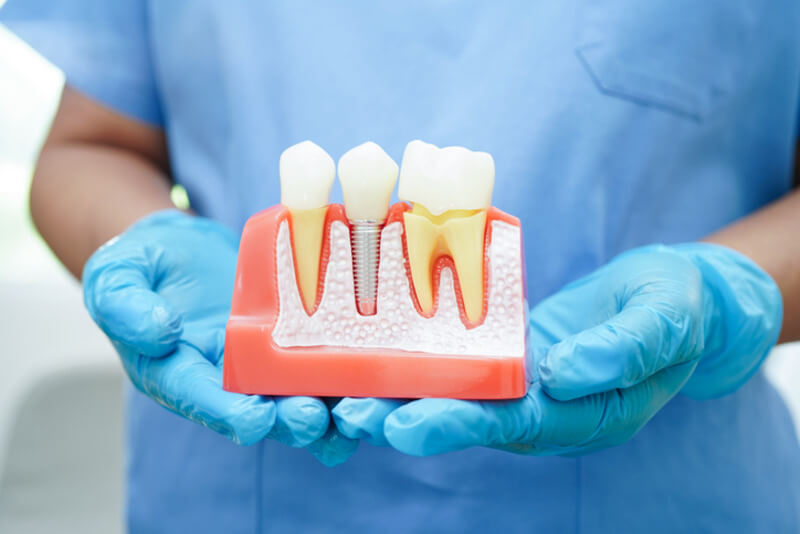
If you smoke and are considering dental implants, it’s important to understand how tobacco use can affect the success of your treatment. Smoking impacts nearly every part of the body, including your teeth, gums, and bone health.
These effects make it much harder for your mouth to heal and greatly increase the risk of dental implant problems. Understanding the link between smoking and implant failure can help you make informed decisions about your care. To learn more, continue reading or contact our dental office to schedule a consultation.
How Smoking Affects Your Oral Health
We all know that tobacco is harmful to just about every organ in the human body, and your teeth and gums are no exception. Tobacco use, whether cigarettes, cigars, vaping, or smokeless tobacco, creates many problems for the mouth. Common issues linked to smoking include:
- Increased plaque and tartar buildup
- Tooth discoloration and staining
- Accelerated wear of gum tissue and bone
- Higher rates of tooth loss
- A higher risk of gum disease and oral cancer
- Inflamed salivary glands and other inflammation in the mouth
- Higher risk of implant failure
These problems weaken the foundation that supports your natural teeth, and they have an even greater impact when you receive dental implants.
How Smoking Affects Dental Implants: What You Need to Know
When it comes to dental implants, smoking raises the risk of complications. If you are thinking about an implant procedure, consider the following:
- Higher implant failure rates: Studies show that implant failure is much more common in smokers compared to non-smokers.
- Greater risk of infection: Smoking increases the risk of peri-implantitis, an infection that damages the tissue and bone around the implant.
- Reduced bone graft success: Sometimes, bone grafting is needed before implant surgery. Smoking lowers the likelihood that a bone graft will fully heal and integrate with your jaw.
- Delayed healing: Nicotine reduces blood flow to the gums and soft tissues. This makes it harder for your mouth to heal after implant placement.
- Dry mouth and gum irritation: Tobacco use can damage salivary glands. This increases the risk of gum disease and bone loss.
Because dental implants rely on a strong jawbone and healthy gum tissue, these smoking-related issues can make a successful outcome much more difficult.
Smoking After a Tooth Implant
Some patients ask about light smoking after a dental implant or how soon they can smoke again. Even small amounts of nicotine can interfere with healing, so the safest choice is to avoid smoking altogether. To reduce the risk of problems developing:
- Avoid smoking for at least 2 weeks before your implant procedure. This helps improve blood flow and reduces complications during surgery.
- Do not smoke for at least 8 weeks after surgery. The implant must fuse with your jawbone (a process called osseointegration). Smoking after an implant can disrupt this critical healing stage.
- Maintain excellent oral hygiene. Implants require regular brushing, flossing, and professional cleanings to stay healthy.
If you struggle to stop smoking, talk with your medical provider about resources that can help you quit.
Dental Implants in Elk Grove Village, IL
Replacing a missing tooth as soon as possible helps preserve your bone structure and prevents neighboring teeth from shifting. At Brian Homann, DDS, we provide dental implants in Elk Grove Village, IL, to restore smiles after tooth loss. We provide single implants, implant-supported dentures, and bridges. Our team focuses on helping patients achieve a beautiful outcome by supporting healthy healing and long-term implant success.
Our team offers years of experience and a dedication to personalized dental care. If you’re considering implants and have questions about smoking with dental implants or how tobacco use affects the healing process, we’re here to help. Contact our office to schedule an appointment. We will be happy to discuss your treatment options so you can make the decision that feels right for your smile.

